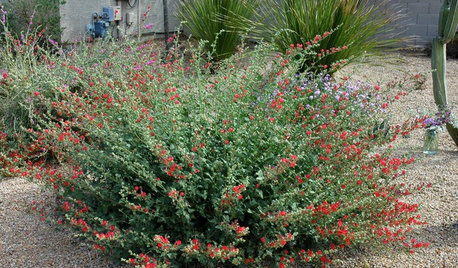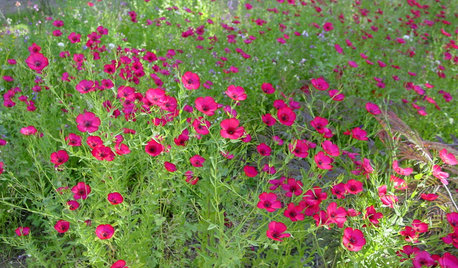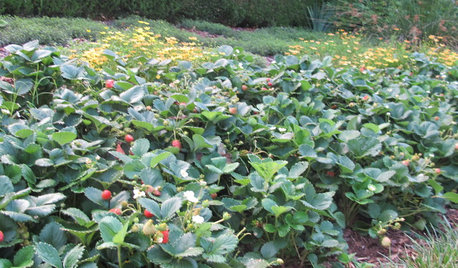organic liquid fertilizer
njitgrad
9 years ago
Related Stories

GARDENING GUIDESGet on a Composting Kick (Hello, Free Fertilizer!)
Quit shelling out for pricey substitutes that aren’t even as good. Here’s how to give your soil the best while lightening your trash load
Full Story
GARDENING GUIDESHow to Switch to an Organic Landscape Plan
Ditch the chemicals for a naturally beautiful lawn and garden, using living fertilizers and other nontoxic treatments
Full Story
GARDENING GUIDESHow to Keep Your Citrus Trees Well Fed and Healthy
Ripe for some citrus fertilizer know-how? This mini guide will help your lemon, orange and grapefruit trees flourish
Full Story
GARDENING GUIDES5 Prairie Wildflowers That Can Heal Your Soil
Get free, organic soil fertilizer with nitrogen-pumping plants that draw pollinators too
Full Story
GARDENING GUIDESCommon Myths That May Be Hurting Your Garden
Discover the truth about fertilizer, soil, staking and more to keep your plants healthy and happy
Full Story
GARDENING GUIDESSouthwest Gardener's February Checklist
Orange you glad for a citrus-fertilizing reminder? And don't forget the recommended doses of vegetable seeds and cold-hardy flowers
Full Story
GARDENING GUIDESSouthwest Gardener's August Checklist
Manage monsoon effects, remember to fertilize and don't let the heat deter you from planting for fall
Full Story
REGIONAL GARDEN GUIDESSoutheast Gardener's September Checklist
Fertilize strawberries, plant a tree or two and beckon hummingbirds to your Southern garden this month
Full Story
GARDENING GUIDESPacific Northwest Gardener: What to Do in September
Put in cool-weather veggies, fertilize your lawn and tidy the garden this month before chilly weather arrives
Full Story
GARDENING GUIDESThe Poop Scoop: Enrich Your Soil With Good Old Manure
Get over the ick factor already — this natural super-ingredient for soil has so many benefits, you'll wonder why you ever went chemical
Full StoryMore Discussions








howelbama
njitgradOriginal Author
Related Professionals
Holly Springs Landscape Architects & Landscape Designers · Barrington Hills Landscape Architects & Landscape Designers · Birmingham Landscape Architects & Landscape Designers · Oatfield Landscape Architects & Landscape Designers · Zion Landscape Architects & Landscape Designers · Roxbury Crossing Landscape Architects & Landscape Designers · Arlington Landscape Contractors · Brookside Landscape Contractors · Ashburn Landscape Contractors · Brunswick Landscape Contractors · Camp Verde Landscape Contractors · Fort Atkinson Landscape Contractors · Oxnard Landscape Contractors · Deer Park Driveway Installation & Maintenance · Palm Desert Driveway Installation & Maintenancehowelbama
digdirt2
planterjeff
seysonn